Wheatgrass For Teeth: The Oral Health Guide
Wheatgrass is probably the most popular microgreen. This can be attributed to its components, such as chlorophyll, antioxidants, and vitamins. However, this superfood holds one more secret: its multifold benefits in the area of dental health. This guide will look into the specifics of how wheatgrass affects your dental health and everything you need to know about the influence.
What Is Wheatgrass?
Wheatgrass is the young shoot that grows from sprouted wheat seed. The process of growing wheatgrass begins with an initial soak that breaks the seed's dormancy and requires about 12 hours. The sprouts are then moved to the growing area where they are rinsed and drained every 12 hours on a regular basis for 6 to 10 days.
How Does Wheatgrass Affect Your Teeth?
1. Preventing Dental Cavities
Wheatgrass is rich in chlorophyll, which has strong antibacterial properties. Consuming wheatgrass on a regular basis will, therefore, reduce the prime cause of tooth decay, which is the growth of streptococcus Mutans bacteria. The bacteria metabolize food particles left in between the teeth after a meal and produce lactic acid, which decays the tooth enamel leading to dental cavities. Ref: link.
2. Stopping Halitosis
Another benefit of the antibacterial properties of wheatgrass is the reduction of halitosis, a condition that's mainly characterized by bad breath. Halitosis is mainly a result of bad oral hygiene, which encourages the growth of bacterial cultures, which produce sulfur compounds hence the bad breath. The antibacterial action of wheatgrass will decimate these harmful bacteria cultures making it a natural treatment for halitosis. Ref: link.
3. Inhibit Gingival recession
Receding gums, also known as gingival recession, is a health condition that exposes the roots of the teeth due to the loss of gum tissue. Wheatgrass is packed full of antioxidants, vitamins, and chlorophyll, all of which play a critical role in slowing down periodontal disease, which is the major cause of gingival recession. Wheatgrass also contains vitamin E, which is an active natural anti-inflammatory agent that serves to reduce the gingival inflammation. Ref: link.
Ways To Consume Wheatgrass For Oral Health
Chewing Raw Wheatgrass - Chewing freshly harvested wheatgrass will not only exercise your gums and teeth, but it will also provide chlorophyll and other antioxidants. The fibrous nature of wheatgrass serves to clean those tight spots where the toothbrush cannot and removing food particles stuck in between the teeth.
Wheatgrass Juice - Gently swishing wheatgrass juice in your mouth will greatly help in removing harmful bacteria cultures that are ever-present in the mouth. Wheatgrass juice should be taken on an empty stomach, preferably in the morning, to increase the nutrient absorption rate.
Wheatgrass Powder - Wheatgrass powder contains the same benefits as wheatgrass juice, albeit in a more compact form. The best way to use wheatgrass powder for your dental health is by mixing a teaspoon of it with water and using the mixture as a mouthwash.
What Influences Oral Health?
Wheatgrass alone cannot ensure the utmost dental and oral health; instead, a daily regimen of brushing, flossing, and wheatgrass is the best way to combat dental related diseases.
Other Ways To Improve Your Teeth
Eat Fibrous Fruits - Eating fibrous and crunchy fruits such as apples, oranges, and carrots can help in cleaning your teeth. The fibrous texture also stimulates your gums and increases saliva flow, which helps to decrease oral acidity. The reduction in acidity plays a great role in preventing dental complications such as cavities.
Brush Twice Per Day - Brushing your teeth in the morning and before you go to bed will greatly reduce the damage caused by bacteria on the enamel and gums. It's important to note that brushing is not enough; you will need to brush your teeth properly and with the right products. Consult your dentist on the best oral care products for your specific needs.
Floss More Often - Flossing serves more than just a way to remove those pesky pieces of food stuck in between your teeth; it also stimulates the gums. This helps reduce plaque and inflammation in the areas surrounding the gums.
Use Fluoride Paste - Fluoride toothpaste works by providing a protective layer on your teeth. Fluoride also provides an environment that dilutes the acidity in the mouth and fights off germs that usually cause teeth decay.
Limit Sugary And Acidic Meals - Sugary foods promote the growth of oral bacteria, which intron produce lactic acid that corrodes the teeth enamel. Limiting the intake of such foods will reduce the amount of acid produced while cutting down on acidic foods will also play a role in preventing dental decay.
YouTube View
Common Questions
Is Wheatgrass Good For Your Teeth?
Yes, wheatgrass contains chlorophyll and other nutrients, which are important for your dental health.
Is Chlorophyll Good For Teeth?
Yes, chlorophyll has natural antibiotic properties, which helps to reduce the bacteria culture in the mouth that would otherwise lead to decay.
How Do You Get Rid Of A Cavity Without Going To The Dentist?
It's impossible to get rid of a cavity without a visit to the dentist.
Why Is Wheatgrass Bad For You?
Wheatgrass is a sprout, and as such, it's classified as a high-risk food due to the possibility of contamination during the sprouting process. As a result, consuming raw wheatgrass can lead to bacterial infections.
How Much Wheatgrass Should I Drink A Day?
It's recommended to drink up to 2 oz of wheatgrass juice per day.
What Are The Side Effects Of Wheatgrass?
Some of the common side effects of wheatgrass include headaches, nausea, constipation, and upset stomach.
Is Wheatgrass Powder Healthy?
Yes, wheatgrass powder is considered to be healthy as it contains the same nutrients found in raw wheatgrass sprouts, albeit in dehydrated form.
Can Oil Pulling Fix Cracked Teeth?
Oil pulling can be used to treat teeth decay and bad breath, but it cannot undo the damage done on the teeth.
Does Wheatgrass Help Bad Breath?
Yes, wheatgrass contains antibiotic properties that eliminate the bacteria culture that causes bad breath.
Can You Really Heal A Cavity?
Yes, if stopped early, tooth decay can be reversed, whereby the enamel repairs itself over time.


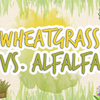
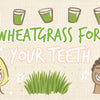
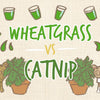
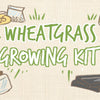
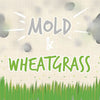
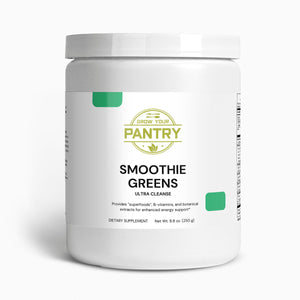
Thank you for the awesome message about wheat grass & oral health.
Hello,
Do I rinse with water after gargling?/swishing the wheatgrass or do I just go about my day?